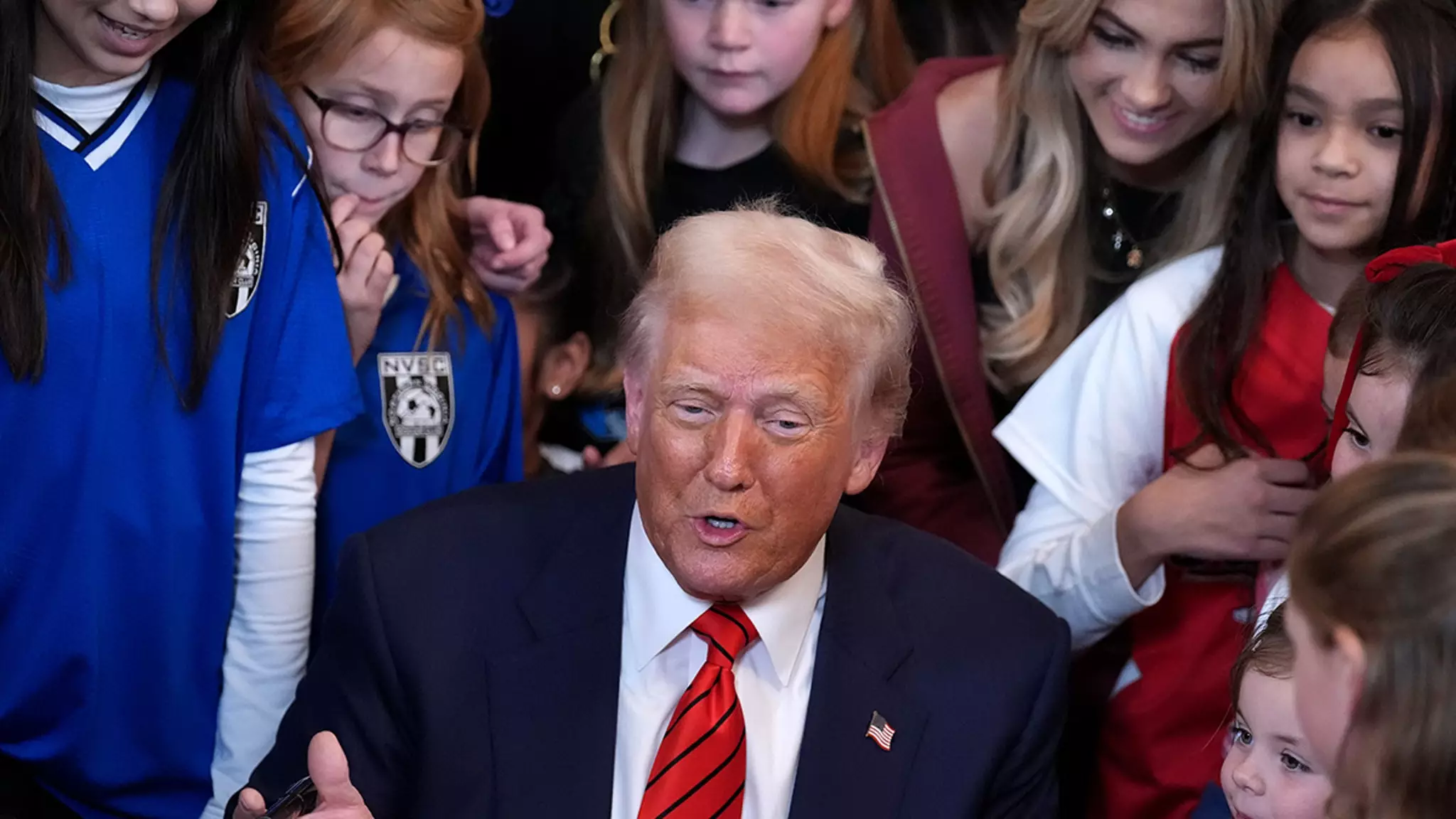Former President Donald Trump’s recent executive order aimed at prohibiting transgender women from competing in women’s sports is generating considerable discussion and controversy. This decision, presented during a spirited ceremony at the White House, reflects not only Trump’s ongoing engagement with his base but also a striking moment in the dialogue surrounding gender identity and inclusivity in athletics. By claiming he was putting an end to “men beating and battering female athletes,” Trump positioned the initiative as a protective measure for biological women, potentially resonating with those who feel that their competitive integrity is at risk.
In practical terms, the Executive Order entitled “Keeping Men Out of Women’s Sports,” grants the Department of Education the discretion to rescind federal funding from educational institutions that allow transgender athletes to compete in women’s competitions. Trump’s approach extends to the upcoming 2028 Olympics in Los Angeles, suggesting that he seeks to alter the landscape of competitive sports at all levels, from local schools to the international stage. Furthermore, he instructed the Secretary of Homeland Security, Kristi Noem, to refuse visa applications from men seeking to enter the United States under the guise of being female athletes—a provision that raises several ethical and logistical questions.
The executive order has garnered enthusiastic backing from segments of the population that view it as a necessary safeguard for women in sports. Applause rang throughout the gathering where athletes and advocates of the order celebrated what they perceive as a restoration of fairness in competitive dynamics. Notable figures, such as former university swimmer Riley Gaines, lauded Trump’s commitment to revisiting policies they believe threaten the integrity of female sports.
Conversely, the response from human rights proponents has been alarming. Kelley Robinson, President of the Human Rights Campaign, criticized the order for potentially fostering environments conducive to harassment and discrimination, especially for young individuals navigating their identities. Robinson articulated a fundamental belief that sports—traditionally a space for unity and purpose—risk becoming a setting for division if inclusivity is compromised.
This executive order is not merely a political maneuver; it reflects a broader cultural struggle over the definitions of gender and equal rights. The implications of such policies extend beyond sports, potentially influencing legislation and societal attitudes toward transgender individuals. Given the rising visibility and advocacy of LGBTQ+ rights, this particular decision could signal a regression in the progress made toward inclusivity. As sports adapt and evolve, so too must the discourse surrounding them.
As the debate unfolds, the core questions revolve around fairness, competition, and the rights of individuals to partake in sports according to their gender identity. Trump’s bold declaration has undoubtedly reignited the discussion about the place of transgender athletes in the sporting world, presenting a challenge not only to lawmakers but also to society at large. Ultimately, how this landscape evolves will depend on ongoing dialogues, legislative responses, and cultural shifts in understanding gender and identity.

